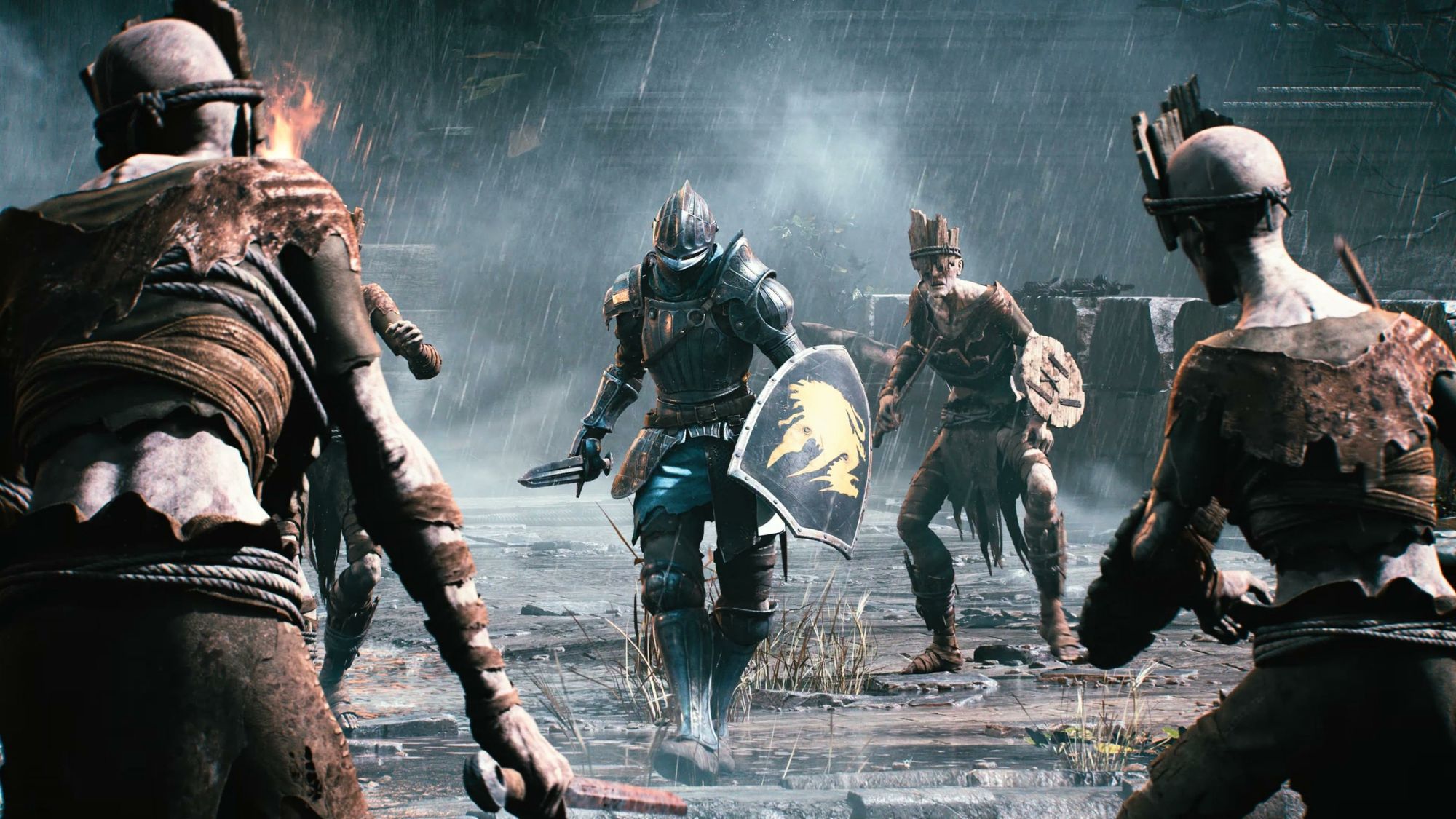Once Again Through the Long Dark Hallway

My first death contained no ceremony. I crept along the crumbling parapets and broken bridges of Boletaria’s greying castle, every corner concealing shadowed foes. I tensed, my entire body tight with adrenaline, my shield eternally cocked, my itchy finger crooked over the trigger to react with violent panic and a (hopefully) well-timed sword swing. When I died, it was not to the throes of an expert back-and-forth with a dragon. It wasn’t to the final miss of a perfect parry. It wasn’t even to the first boss.
The first time I died was to a normal, screeching enemy with a broken sword and less than a hundred hit points. I died because that was what Demon’s Souls expected of me — but it also expected me to continue.
Loving the Pain
Demon’s Souls, back in 2009, gleefully arrested me from my community college woes. I loved the pain of it — I reveled in the anguish of loss and the exquisite pleasure of finally beating a structured boss or struggling against some infernal cave or infested swamp over and over again. It was different, this new rogue-like of repetition and sorrow and overcoming impossible odds. My first build was inept and stupid, filled with materials wasted on bad weapons and a build of uneven stats. I was young, and angry, and confused, and busy.
Now, I’m older. Demon’s Souls is still with me.
Endless pieces have given the Souls series a back and forth about its components, from its absurd but scalable difficulty to its frenzied and fragmented lore, to its place among other video game giants and how it has affected the genres of rogue-likes, RPGs, and action games as a whole. Demon’s Souls and Dark Souls have so fully impactive the narrative of gaming that they are often wielded as bludgeons in conversations that should be wholly bereft of their influence (‘this is the Dark Souls of fishing minigames!’) and yet we return, time and time again, because the core facet of the Souls series’ belonging is not due to any individual piece. It’s the vibe of the games that persevere, and how playing Demon’s Souls or Dark Souls, for better and for worse, just feel different than other gaming experiences.
Cracking into a new Souls game has long been something of a spiritual experience for me. I am now over a decade removed from the first time a dear friend of mine impressed the relevance of Demon’s Souls to me, and after Dark Souls, Dark Souls II, Dark Souls III, Bloodborne and Sekiro, I have been incalculably blessed by the experiences contained by each of these games. As any fan of FromSoftware’s titles can tell you, the initial play through of any of these unique games is something of a trial by fire, where the entire landscape is scoured for items, weapons, and materials while the player character explores a world that is not only indifferent to them, but intensely aggressive.
Going Hollow
My time with Dark Souls, like Demon’s Souls before it, was framed by the experience shared with my siblings. It’s not that we are elite gamers or masochists, we simply enjoy the games. They’re fun. The experience put forth by each game in the Souls series is something of an exploratory mecca, a place where each of us can become lost in a dark world that still feels more fruitfully designed than our own real one. Across the decade and counting, we have joyfully shared secret discoveries, the placements of obscure items, curious lore dumps and boss strategies. When it comes to the darkness of a Souls game I welcome it wholeheartedly, deaths and all, because I came out the other side a richer person. It has nothing to do with proving that I’m good enough to best a super hard boss or wear the moniker of some long-time Souls player; the Souls games, for me, feel like coming home.
I can remember the exactly place in my life when I played each Souls game and gleefully took in the experience of exploration and pain — for Demon’s and Dark Souls, it was an escape from the struggles of college. For Dark Souls II and Bloodborne, it was a sweetness that avoided the agony of a job that took advantage of me. For Dark Souls III, it was the anchor that kept me from the untangled void on my ascension to my thirties. For Sekiro, it was the plunge of the untimely loss of a job. For this newly remade Demon’s Souls, it’s a balm on an overly-long pandemic. The discussion around my experiences with each game and the time spent dying over and over and over again is not reactionary but meditative — each Souls game (and yes, Bloodborne and Sekiro) has been a blessed walk down a long dark hallway.
Beautiful Agonies
Seeking oblivion in these games has always felt right to me. The bond with them is strong. It’s more than escaping to Boletaria and Lordran and Drangleic and Yharnam, it’s that these games pushed me into overcoming something in a virtual space that had no holds on the successes or failure of my actual life. As my adulthood has drawn on and I’ve become increasingly numb to the corners of my life where I should seek out new meaning, time and again I’ve been able to face a giant skeleton or die to the breath of an infernal dragon with glee. The agonies in each Souls game have felt sweet because I knew that no matter what happened I would keep pushing forward. I would keep exploring. I would keep reveling in the experience of being my best self in a space that wouldn’t react to me with ugly permanence. Each tangent of completely losing myself to the labyrinthine chaos of an ashen world attached me to some sense of spiritual longing with more vibrancy than I’ve ever felt from a bodily experience.
I recently (finally) acquired a PlayStation 5 and with it the new version of Demon’s Souls. It’s exquisite. It’s beautiful. It’s painful. It’s a Souls game. Despite the years that I played it previously, on this play through I have died again and again. I’ve made mistakes. I’ve caught myself in moments of frustration and moments of beauty. I’ve stood in the nexus only to admire the ethereal rings of it, to examine the cracks in each archstone, to simply look on in adoration at the character that I’ve built. I’ve returned to the Tower of Latria and the Valley of Defilement and found that the world outside of me has quieted so such a muted thrum that I forgot, for a brief time, my constant woes.
Souls games do that for me.
